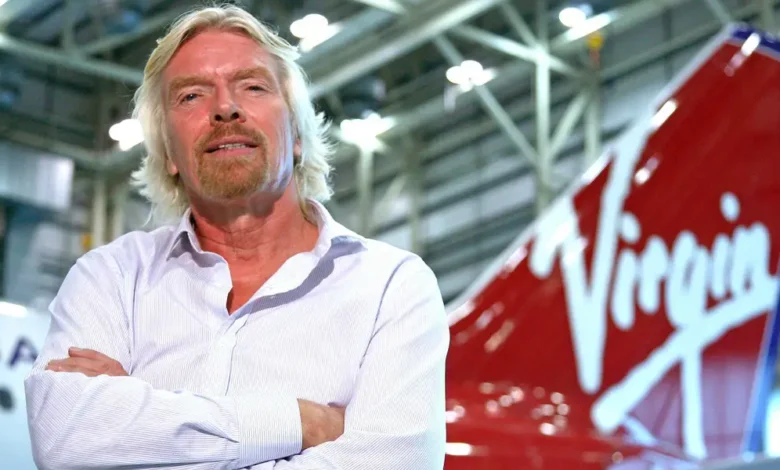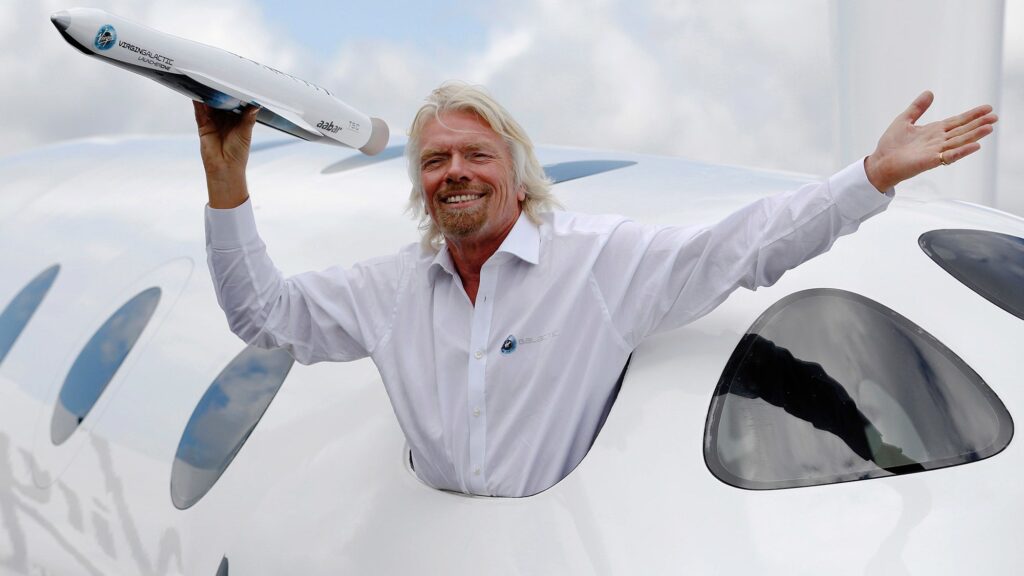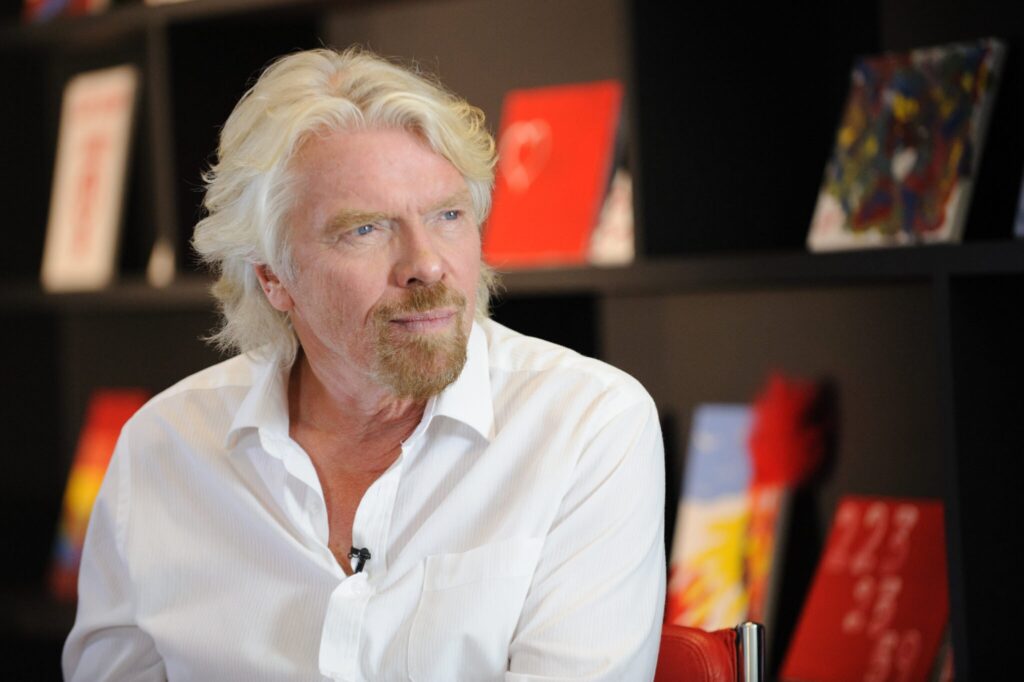The Maverick Entrepreneur: How Richard Branson Mastered Disruption to Build an Empire

The Maverick Entrepreneur: How Richard Branson Mastered Disruption to Build an Empire. Richard Branson is not just a name—he’s a brand. From founding Virgin Records to disrupting the aviation industry with Virgin Atlantic, Branson’s career is a masterclass in leveraging authenticity, embracing bold risks, and identifying market gaps. His ability to connect with people while challenging the status quo has solidified him as one of the most recognized and respected entrepreneurs of our time. But what sets him apart? It’s his unique trait: the art of disruption. Here’s how Branson harnessed this talent to create a global empire, and what aspiring entrepreneurs can learn from his journey.
Authentic Beginnings: Building Virgin Records
Branson’s entrepreneurial journey began in 1970, when he launched a mail-order record business at the age of 20. The idea was simple: offer discounted records to music lovers. His authenticity and understanding of youth culture resonated with his audience, leading to the opening of the first Virgin Records store. Shortly after, Virgin Records became a record label, signing unconventional artists like the Sex Pistols and Mike Oldfield.
By embracing music that mainstream labels ignored, Branson tapped into a counterculture movement, making Virgin synonymous with rebellion and innovation.
Lesson: Authenticity builds trust. Understanding and serving the unmet needs of your audience can set you apart.

Taking to the Skies: The Birth of Virgin Atlantic
The leap from records to aviation was unorthodox, but Branson saw an opportunity to disrupt the airline industry. In 1984, Virgin Atlantic launched with a single aircraft, promising better service, more comfort, and entertainment options than traditional airlines.
The airline’s success came from Branson’s focus on customer experience. From in-flight entertainment to attentive staff, Virgin Atlantic redefined what travelers expected from airlines. Yet, the journey wasn’t without turbulence. Early on, Virgin Atlantic faced fierce competition from British Airways, including a “dirty tricks” campaign aimed at sabotaging Branson’s business.
Branson’s response? He sued British Airways and won a substantial settlement. Instead of pocketing the money, he distributed it among Virgin Atlantic employees, further cementing loyalty within his ranks.
Lesson: Resilience and customer-centric innovation can help small players compete with industry giants.
Capitalizing on Culture: Virgin Mobile’s Youth Appeal
In the late 1990s, Branson turned his attention to telecommunications, launching Virgin Mobile. By targeting young, tech-savvy consumers with prepaid options and no-contract plans, Virgin Mobile positioned itself as the “anti-establishment” alternative to traditional telecom giants. The branding was playful and irreverent, appealing to a generation craving flexibility and freedom.
Lesson: Understanding cultural shifts and aligning your brand with emerging consumer values can unlock untapped potential.

Mistakes and Lessons Learned
Branson’s career hasn’t been without missteps. His foray into Virgin Cola in the 1990s is a notable example. Despite bold marketing—including driving a tank through New York’s Times Square—Virgin Cola failed to compete with Coca-Cola and Pepsi. The brand’s distribution network was weak, and its pricing strategy didn’t resonate with consumers.T
The lesson? Branson learned the importance of scalability and understanding market dominance before entering new industries.
Lesson: Bold ideas need strong infrastructure and strategic planning to succeed.
Expanding the Empire: Virgin Galactic
Branson’s vision extended beyond Earth with Virgin Galactic, a space tourism company aiming to make space travel accessible. While the project faced numerous delays and financial challenges, Branson’s determination never wavered. In 2021, he became one of the first civilians to travel to space, a moment that symbolized Virgin’s pioneering spirit.
Lesson: Big visions require patience and resilience. Pioneering a new frontier often means navigating uncharted challenges.
The Power of People and Purpose
One of Branson’s core beliefs is that employees are a company’s greatest asset. Across his ventures, he’s fostered a culture of innovation, trust, and empowerment. By prioritizing employee satisfaction, Virgin created a workforce that consistently delivered exceptional customer experiences.
Lesson: Happy employees lead to happy customers. Invest in your team to build a strong foundation for growth.
The Art of Disruption: Branson’s Legacy
What makes Richard Branson unique is his ability to disrupt industries while maintaining a human touch. Whether it’s through innovative marketing, exceptional customer service, or bold ventures into uncharted territories, Branson has consistently challenged norms to create lasting impact.
His legacy is a testament to the power of dreaming big, staying authentic, and embracing failure as a stepping stone to success.

Actionable Insights for Entrepreneurs:
- Identify gaps in the market and address unmet needs with authenticity.
- Prioritize customer and employee experiences to build lasting loyalty.
- Embrace bold risks but ensure they’re supported by solid strategies.
- Learn from failures and pivot quickly when faced with challenges.
- Stay resilient and committed to your vision, even during tough times.
Richard Branson’s rise is not just a story of business success but of perseverance, innovation, and an unwavering belief in the power of people. Aspiring entrepreneurs can draw inspiration from his journey to disrupt industries, create meaningful connections, and turn bold ideas into thriving businesses. In Branson’s words, “Business opportunities are like buses; there’s always another one coming.” It’s up to you to seize it.




